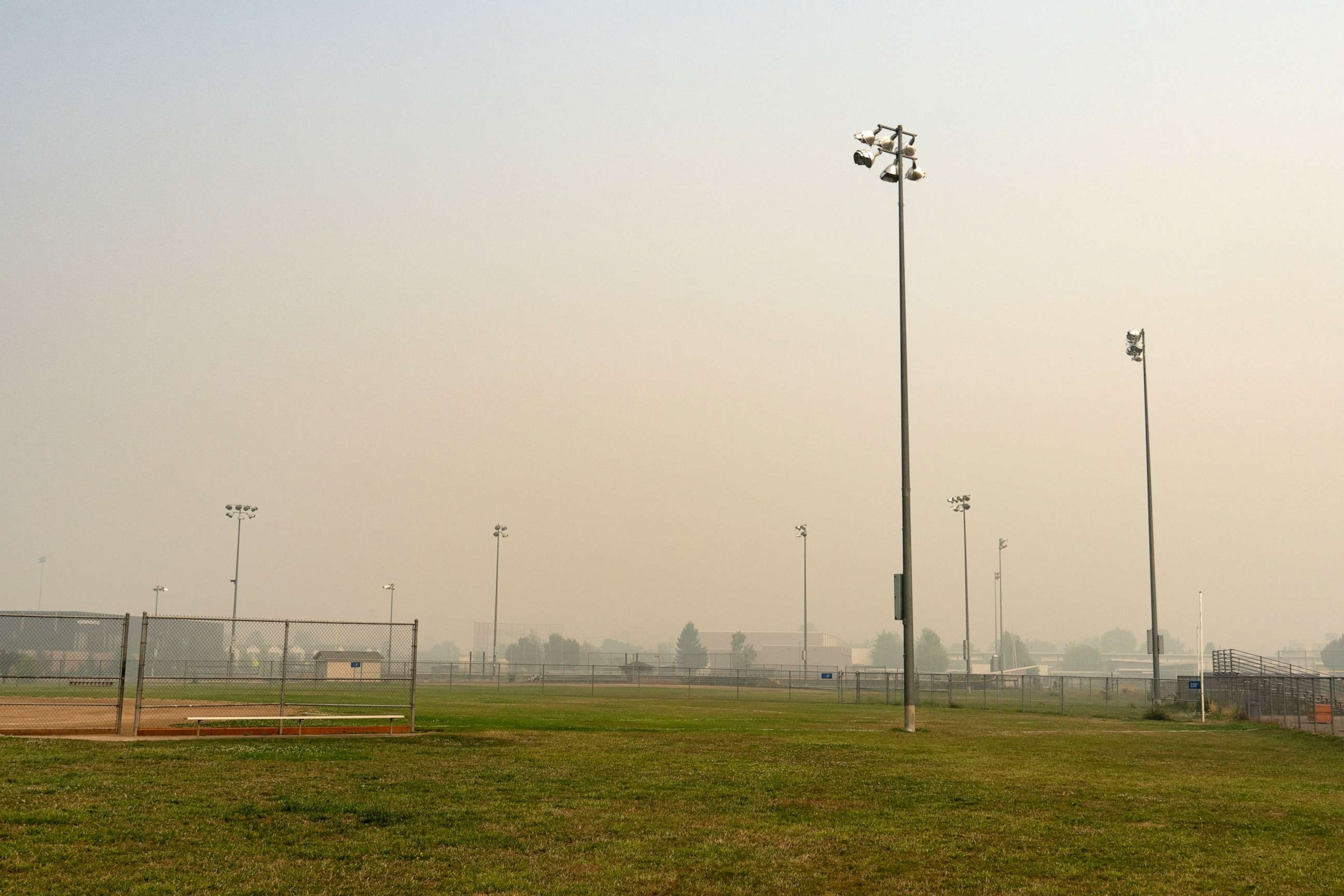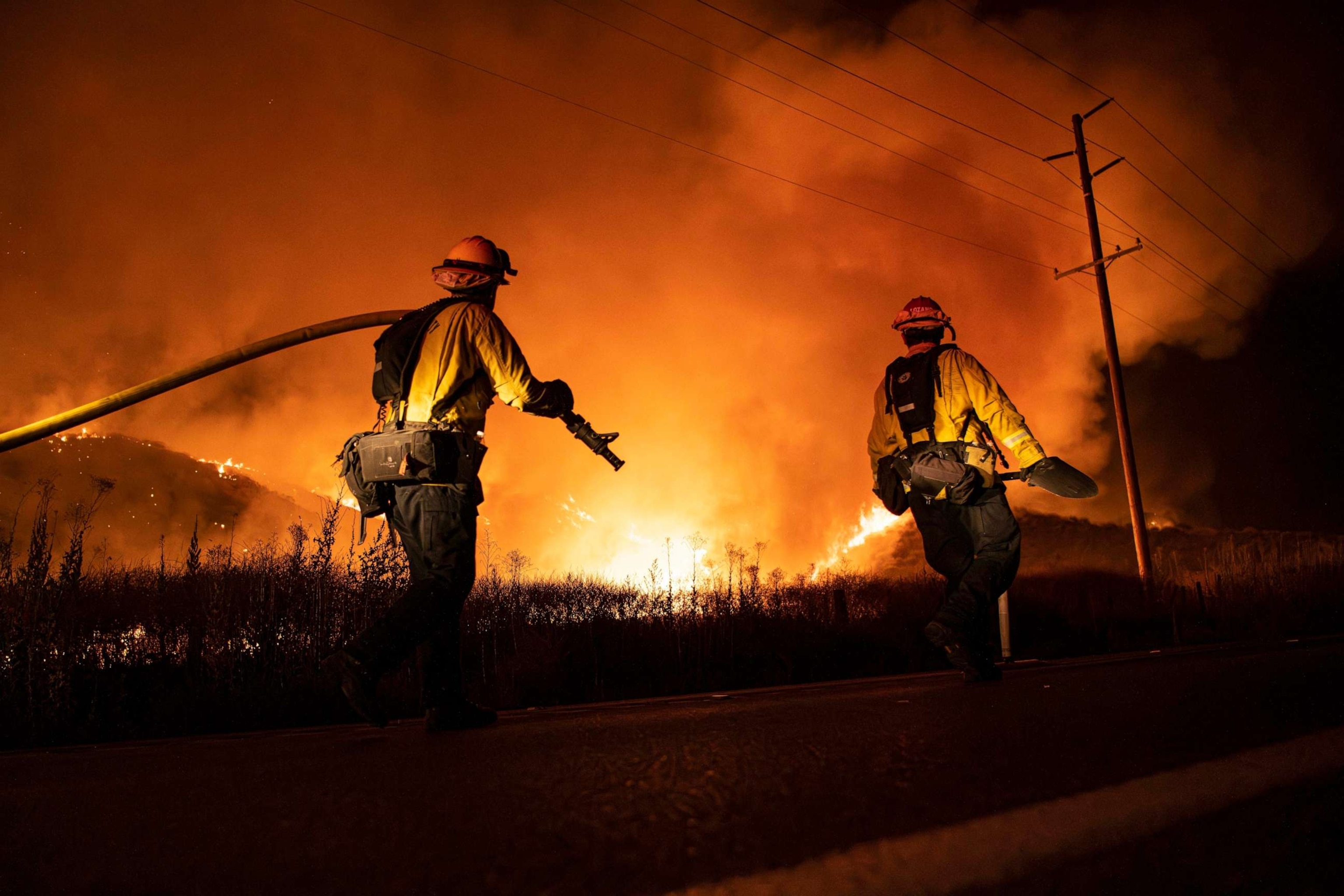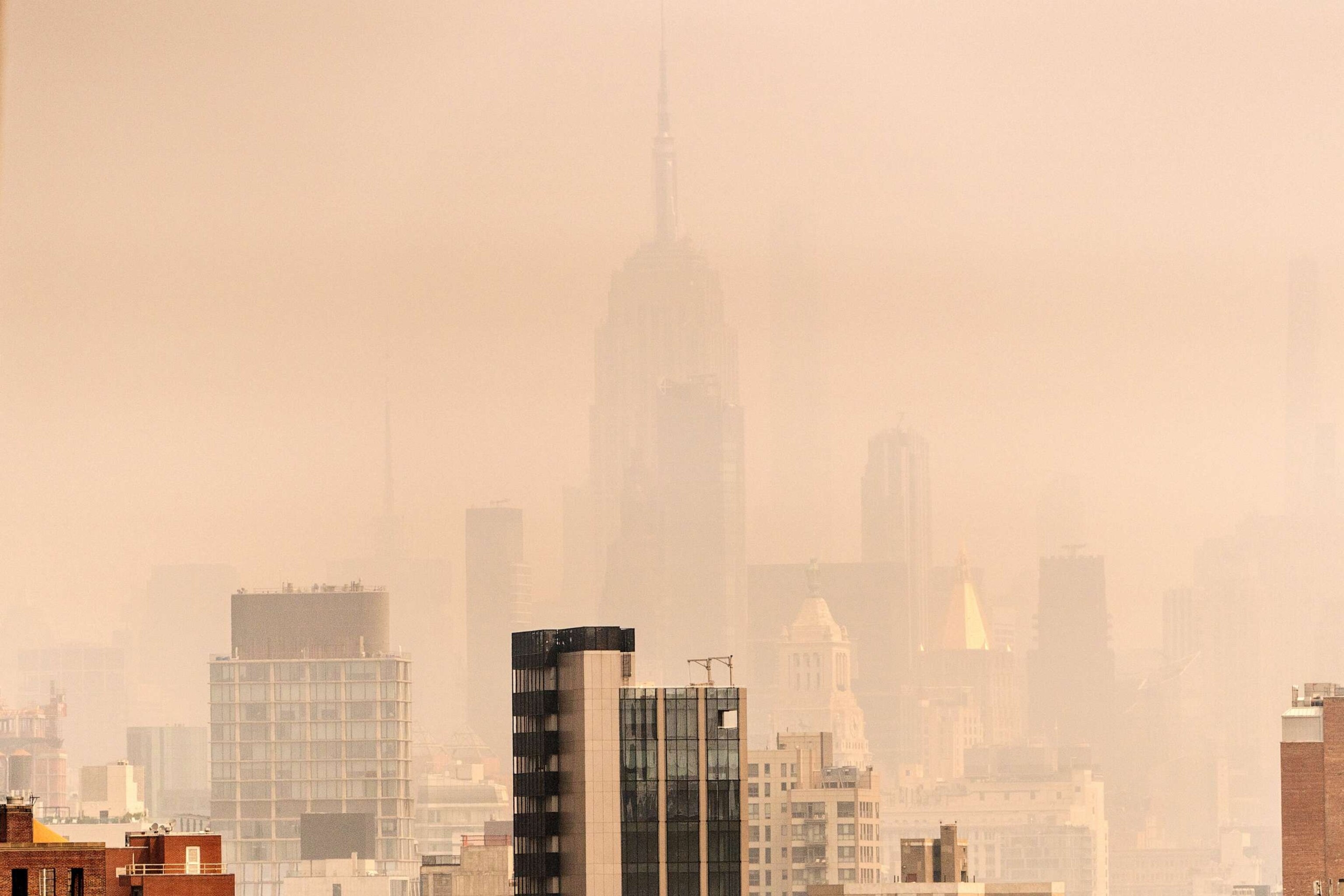Wildfires in recent years have reversed some of the progress made in eliminating air pollution, new study suggests
Much of the progress made since the start of the century has been reversed.
The smoke from wildfires in recent years has been so intense that it is decreasing air quality in the majority of the U.S., reversing some of the improvements made to air quality in the last several decades, according to new research.
Wildfire smoke in the U.S. had a "notable influence" on recent air quality trends in nearly 75% of states in the continental U.S., despite air quality that has been steadily improving over the past several decades, largely due to policies like the Clean Air Act, according to a study published in Nature on Wednesday.

Wildfires have been increasing in size, frequency and intensity in recent years -- at the same time that progress in air quality improvement has stagnated across much of the U.S., with some regions reporting rising levels of fine particulate matter (PM2.5), the study found.
The biggest surprise for the researchers was the extent of the influence of wildfires on diminishing air quality throughout the country, even reversing the progress made in recent decades in some regions, Marshall Burke, associate professor at Stanford University's Doerr School of Sustainability and lead author of the study, told ABC News.
"What we found was a pretty substantial and widespread fingerprint of wildfires on air pollution trends in the U.S.," he said.
Researchers combined air pollution data from ground and air sensors between 2000 and 2022 to determine the contribution of wildfire smoke to PM2.5 trends and found pollution was declining in 41 of the 48 states before 2016.
That decline has since slowed in 31 states and begun to reverse in 11 states, according to the paper.

Smoke from just six years of wildfires in North America, from 2016 to 2022, was found to have eroded nearly 25% of the air quality progress made in the U.S. since the start of the century, Burke said.
"All of this success we'd had before is being rapidly unraveled, at least in some parts of the country, by wildfires," he said. "And that's a that's a concern."
Fine particulate matter, known as PM2.5, is 30 times smaller in diameter than a human hair and cannot be seen by the naked eye. Exposure to concentrated amounts of PM2.5 can cause both short-term effects such as irritation of the eyes, nose and throat; coughing, sneezing; and shortness of breath, and long-term effects such as worsening of conditions such as asthma and heart disease, according to the U.S. Environmental Protection Agency.
The severity of the wildfires in recent years are a result of a combination of a century of fire suppression, which has left more fuel on forest floors to ignite, and global warming, which is creating drier landscapes that amplify a spark of flames, Burke said.

The study data doesn't even include the wildfires that have been burning in 2023, including the unprecedented wildfire season in Canada, Burke said.
While the West Coast has been dealing with acute events of dangerous air quality in recent years, the Northeast and even some parts of the South experienced toxic levels of air pollution in June.
More of these extreme air pollution events could continue in the future if severe wildfires continue to burn unabated, Burke said.
"I would be surprised if we didn't see more events analogous to this in future years," he said.




